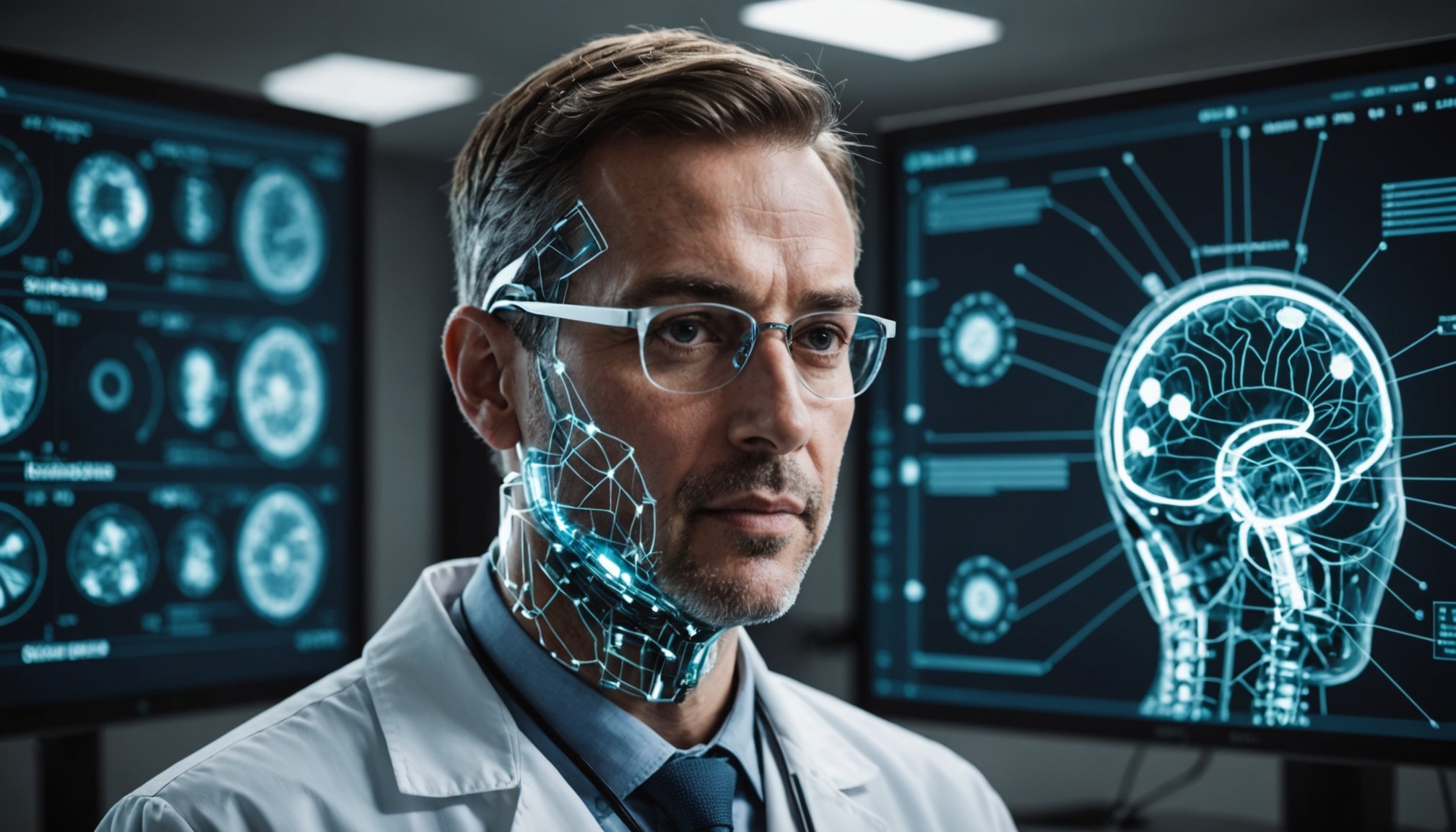Importance of Predictive Analytics in Healthcare
Predictive analytics plays a crucial role in healthcare improvement by aiding in effective decision-making and enhancing patient outcomes. By utilising vast datasets, predictive analytics allows healthcare providers to foresee potential health events and tailor treatment plans accordingly. This proactive approach not only improves patient care but also optimises resource allocation within healthcare systems.
Accurate and comprehensive data is fundamental for the success of predictive analytics. It serves as the backbone for making informed decisions in healthcare settings. Without precise data, the risk of misdiagnosis and inappropriate treatment plans increases, emphasising the necessity for robust data collection and analysis techniques.
Also to see : Master french fast: your path to speaking fluently and confidently
The impact of predictive analytics on patient outcomes is significant. By anticipating possible disease trajectories and patient needs, healthcare professionals can intervene early, potentially preventing complications and reducing hospital readmissions. Moreover, predictive analytics supports the efficient allocation of healthcare resources, ensuring that facilities and personnel are utilised optimally to meet patient demands.
In essence, predictive analytics is revolutionising healthcare by equipping providers with the tools needed to enhance treatment efficacy and overall patient satisfaction. As the field continues to evolve, its importance in the healthcare ecosystem is only set to grow.
In parallel : How to choose the right building supplier company
Applications of AI in Predictive Analytics
Artificial Intelligence (AI) is pivotal in enhancing predictive analytics within healthcare. Various AI methods, such as neural networks and decision trees, are employed to refine data analysis and anticipate health trends more accurately. Machine learning algorithms, by learning from extensive datasets, play a crucial role in enhancing prediction accuracy. They enable healthcare systems to adapt and improve over time, offering more precise forecasts and supporting proactive decision-making.
The integration of AI into predictive analytics is not purely theoretical; practical applications abound. Noteworthy case studies illustrate successful implementation. For instance, a hospital network employing AI technologies managed to reduce emergency-room admissions through improved disease prediction models. This demonstrates AI’s potential in actual healthcare settings, translating complex data into actionable insights that benefit both patients and providers.
AI’s transformative capacity in predictive analytics signifies a broader shift towards data-driven healthcare. By employing advanced technologies, healthcare providers can achieve superior outcomes, optimise resource use, and elevate overall service quality. As AI continues to evolve, its role in predictive analytics will likely expand, offering novel solutions to longstanding healthcare challenges.
Case Studies of AI in UK Healthcare
In the UK, AI Implementation within healthcare systems demonstrates substantial advancements in patient care. The National Health Service (NHS) has been at the forefront of this transformation, launching multiple successful AI initiatives.
Successful AI Initiatives in NHS
One prominent example includes AI systems designed to predict patient deterioration. These systems are adept at interpreting data to alert medical staff in real-time, significantly enhancing patient monitoring. Additionally, case studies reveal that predictive models have decreased emergency admissions, indicating improved patient flow management.
Impact of AI on Patient Care
Integration of AI has led to notable improvements in patient care. Hospitals employing these technologies have reported reduced waiting times and more accurate diagnoses. The focus on AI-driven predictive analytics helps tailor treatments to patients’ specific needs, bolstering overall healthcare efficiency.
Lessons Learned from Implementation
Implementing AI in NHS settings has not been without challenges. AI Initiatives underscored the importance of robust data integration and tackling initial resistance from healthcare staff. Overcoming these hurdles has paved the way for further advancements, positioning AI as a crucial component in modern healthcare solutions.
Benefits of AI-Driven Predictive Analytics
Integrating AI-driven predictive analytics into healthcare systems offers numerous advantages, transforming traditional methods. Foremost among these is enhanced decision-making. By processing complex datasets, AI systems provide healthcare providers with actionable insights, allowing them to make informed choices swiftly.
Through tailored interventions, patient outcomes improve significantly. AI’s ability to predict disease courses and recommend personalised treatment plans ensures patients receive optimal care tailored to their individual needs. This personalised approach not only enhances patient satisfaction but also contributes to overall healthcare efficiency.
Cost-effectiveness is another crucial benefit. AI optimises resource allocation by predicting patient needs and streamlining the use of hospital resources, reducing unnecessary expenditures. This advantage is invaluable in today’s resource-constrained healthcare environments.
Moreover, by reducing administrative burdens and automating routine tasks, AI allows healthcare professionals to focus on more critical aspects of patient care, improving productivity and job satisfaction.
In summary, AI-driven predictive analytics empowers healthcare systems with tools that drive patient care improvements, cost savings, and operational efficiencies. As these technologies advance, their potential to revolutionise the healthcare industry continues to grow.
Future Trends in AI and Predictive Analytics
Emerging technologies are continually reshaping the landscape of predictive analytics in healthcare. As computational power increases, more sophisticated AI models are being developed, enhancing the accuracy and depth of predictions. These advancements are not merely incremental; they pave the way for entirely new possibilities, such as real-time predictive analytics, which can foresee patient outcomes even within a hospital setting.
Looking ahead, AI’s role in healthcare is expected to grow multifaceted and integral. Over the next decade, AI technologies may not only anticipate disease outbreaks but also help in formulating public health strategies. By rapidly analysing genetic data, AI could also advance personalised medicine, offering treatments tailored to an individual’s genetic makeup.
However, staying updated with technological changes is paramount for healthcare professionals. Continuous education is essential to remain proficient in integrating AI solutions into practice. Moreover, adapting to these advancements will be crucial for developing protocols that balance innovation with patient safety and ethical standards. As these technologies evolve, embracing them will allow for an adaptive and resilient healthcare framework that meets future demands effectively.
Challenges in Data Integration and Analysis
The integration of data in healthcare presents significant challenges, particularly with AI-driven predictive analytics. A primary hurdle is the lack of seamless data sharing across platforms, which can impede holistic analysis and decision-making. Often, healthcare systems operate in silos, creating barriers to interoperability. This can lead to fragmented data that affects the accuracy and reliability of predictions, ultimately influencing patient care.
In addition to technical obstacles, the ethical considerations surrounding data usage are paramount. Ensuring patient privacy and consent in data collection and analysis is crucial. Mismanagement in these areas can lead to significant ethical dilemmas and legal challenges. Hence, developing robust protocols for data protection is essential in preserving trust and compliance.
Moreover, the implementation of AI-driven analytics faces technical difficulties. The complexity of integrating new technologies with existing systems can lead to delays and increased costs. Ensuring compatibility between current infrastructure and new AI solutions demands careful planning and investment. Successfully overcoming these challenges requires healthcare organisations to proactively address these barriers, fostering an environment conducive to innovation. This approach will facilitate the comprehensive adoption of AI, ultimately enhancing data-driven healthcare strategies.



